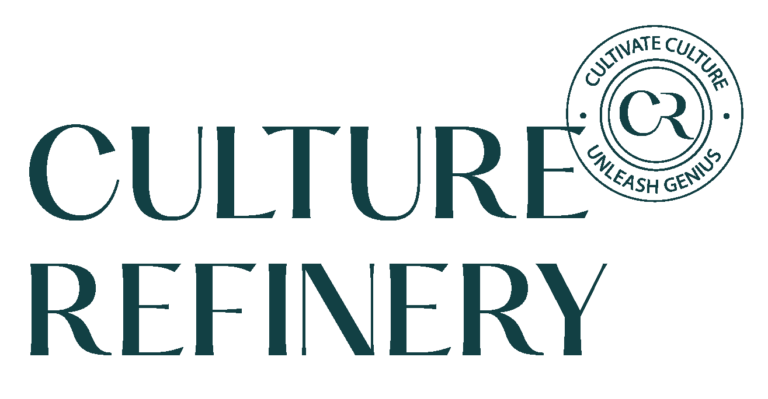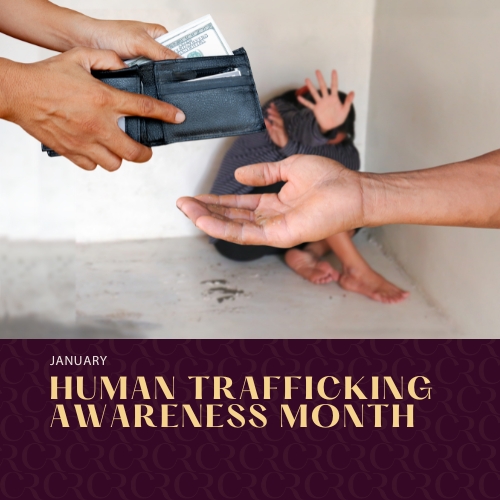Understanding and Combating Human Trafficking in Your Community
The entire month of January is focused on education about human trafficking and understanding ways to combat it. Even in what we consider to be well-developed countries, human trafficking is a real danger to human rights as a whole.
Each year, millions of people are trafficked through various methods. Anything from a coerced relationship to internet stalking can become a playground for traffickers to entrap the people they wish to use for modern-day slavery.
But there are some trends and tendencies human traffickers use for you to be aware of:
- Traffickers use a variety of control tactics including (but not limited to) physical and emotional abuse, threats, isolation from friends and family, economic abuse, and empty promises targeting their needs.
- Predators prey upon those who struggle to get their basic needs met.
- Force, fraud, and coercion are used to make victims provide sexual acts or labor/services.
- Many victims are members of marginalized communities and vulnerable individuals.
- Over 70% of sex trafficking victims are sexually abused prior to being trafficked.
Knowing these trends is just the beginning of an education that can help combat the huge violation of human rights. Below are some suggestions you and your organization can act on to help move the needle on the number of human trafficking victims yearly.
Scrub your supplier list to ensure you’re not supporting products using slave labor.
How many times have you partnered with a supplier only knowing what business looks like at the surface?
The United States has some of the strongest laws against forced labor, but it doesn’t stop it from completely happening. The concern is even greater in other countries which may not have the same laws to protect people from being forced into modern-day slavery.
Now is the time to deep dive into who your suppliers are. Do some research on them to find out who they employ, and more importantly, if there is a possibility of forced labor being used to create products you’re using. If possible, ask for a facilities tour, and get to know the people who are supporting you through their labor, time, and effort.
Worst case scenario, you need to drop a company or two off your supplier list and replace them with companies that run their business more ethically. Best case scenario, you learn more about how they work and create a stronger bond with those you partner with.
Donate to organizations that are working to support human trafficking survivors.
There are several organizations that exist around the world specifically to support the victims of human trafficking. Their efforts not only help to fight against the violation, they also help give survivors a new start to life with resources to cope with their trauma.
Look in your area to see if there are any local organizations you can partner with. Perhaps you and your organization could take it a step past donations and volunteer with events that will raise awareness, and prevent future people from falling victim right where you live.
However, if you need a quick list of organizations that could use a donation to help support their efforts, you can look at this list, here.
Bring in a professional so you and your organization can learn how to spot and report human trafficking.
Having a deeper understanding of the existence of human trafficking is one thing. But what about when the act falls a little closer to home? Would you be able to spot it? How about your employees? Would they be able to recognize either predator or victim behavior? Would anyone in your organization know how or where to report it if you did?
Chances are, you probably don’t know all the nuances that show up before a person falls victim to human trafficking. And chances are, traffickers aren’t going to have obvious tactics you’d notice right away. However, that doesn’t mean they don’t exist right in front of you.
We’d like to suggest that you bring in a professional who can provide a workshop to help you and your teams learn how to spot and report human trafficking behavior, so you can be an active supporter of minimizing modern-day slavery.
Be a Part of the Human Trafficking Solution
No matter what our textbooks like to say, slavery is not a thing of the past. It’s part of our current reality, all around the world. And even though there are more and more laws to help combat it, we can’t rely on the law alone to protect individuals from slave labor.
This January (and throughout the year), we encourage you to take a moment and consider how you and your organization can contribute to the conversation, and learn how to step up, reach out, and say something when human trafficking is evident.
If you’d like to bring in a professional to help talk to your organization about how they can be part of the solution, Culture Refinery would love to help.





